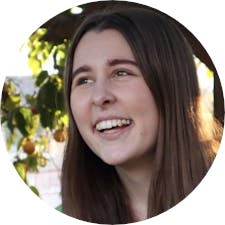Members from the Advisory Council on African American Affairs (ACAAA) provided updates for ASU’s LIFT Initiative in a meeting Friday, the fourth update since President Michael Crow announced the plan last year.
ACAAA staff chair Colleen Jennings-Roggensack and ACAAA faculty chair Jeffrey Wilson detailed some of the initiative's points of progress, including hiring more Black faculty and staff, along with additional support for programs to support students academically and increase diversity and inclusion at ASU.
While the report on the LIFT Initiative is completed, it has not been released to the public yet, Jennings-Roggensack said.
"The report is sitting on the president’s desk, the president (Crow) has read the report," said Jennings-Roggensack, who also serves as vice president of cultural affairs. "What he needs to do now is meet with each of his executive cabinets because each of the initiatives are broken up under each of the cabinet leaderships."
Last year, ASU committed itself to 25 courses of action to improve racial diversity and education on campus. The announcement came after multiple people of color suffered from acts of police brutality last year, including a police officer murdering George Floyd and another shooting Jacob Blake, and the following protests against police brutality and calls for anti-racist action.
READ MORE: ASU announces plans to support BIPOC students, faculty
The meeting was hosted by the African and African American Faculty and Staff Association (AAAFSA). Leaders from the ACAAA, which Crow established to work to fulfill the initiatives, were also among the nearly 70 participants, including faculty, staff and students, who joined the meeting on Zoom.
Hiring and supporting more Black faculty and staff
Under the initiative, more Black faculty and staff have been hired. The first cohort of Presidential Postdoctoral Fellows and graduate assistants this semester has been announced with 30 new graduate assistants and four new postdoc fellows. Three new faculty members introduced themselves during the meeting.
"If I can speak frankly, I’m a little disappointed we only have four postdocs hired at this point," said Vernon Morris, who is on the faculty committee for the council and is the director and professor for the School of Mathematical and Natural Sciences.
According to an ASU report, 3.3% of employees and 2.9% of faculty in Fall 2020 were Black or African American. Over 56% of employees and 62% of faculty were white in the same year.
The council has also been working on changing the amount of staff release time in the staff personnel manual, giving faculty 24 paid hours instead of 16 to be able to dedicate their time to actions outside of strictly classroom-based academic settings. The additional time aims to make it easier for faculty to get involved with mentorship programs, participating in affinity groups and helping the growth and support of students.
Programs promoting inclusion and equality
Kenja Hassan, the assistant vice president for the Office of Government and Community Engagement, provided additional context to the actions that the council has worked on. She is also on the staff executive committee for the council and organizer of AAAFSA.
The initiative is working to support The Difference Engine, an academic center under the Center for the Future of Equality working to create tangible and useful products that communities can use to help reduce the effects of inequality.
"That is a new entity that's looking at how we examine equality and what it means to have actionable items in place," Hassan said.
It has also been working with Starbucks to make adaptations to the To Be Welcoming Program, which trains to help people understand unconscious bias. ASU is working to implement the training for all of its employees. The adapted training is three, 90-minute courses, making it easier for faculty and staff to complete the training without a large time commitment, said Mako Ward, an assistant professor in African and African American studies.
There is also renewed and increased support for the Office of Inclusive Excellence through the initiative. The support is to help in specifying "not only how we're serving all of our students to build access and inclusion, but being really mindful about how we're specifically serving our Black students, faculty and staff as part of our charter mission," said Tiffany Lopez, vice provost for the Office of Inclusive Excellence.
Multicultural Center
The multicultural center, which was promised in the initiative and has been a big topic of discussion for the Tempe campus, was not mentioned in the meeting.
In a meeting with The State Press in August, James Rund, senior vice president for educational outreach and student services, said the multicultural center on the Tempe campus should be running sometime this semester.
The Multicultural Solidarity Coalition has posted multiple videos of the space on the Tempe campus, which is located in the Student Pavilion and is still mostly empty outside of furniture.
The Council is looking to continue its work into the future and even past the end of the LIFT Initiative, as Jennings-Roggensack said she hopes others take over the council in the future.
"LIFT is not done," Hassan said. "We got at least, I’m thinking another year or so, before everything is wrapped up."
Reach the reporter at mcfisch4@asu.edu and follow @morgfisch on Twitter.
Like The State Press on Facebook and follow @statepress on Twitter.
Continue supporting student journalism and donate to The State Press today.

Morgan Fischer is the politics editor, she works with her desk to cover topics related to politics in the ASU community. She has previously worked as an intern for RightThisMinute.




